| Price Per Person || Select By Date to 30-09-2025 |
| No of Person | 3 Star | 4 Star | 5 Star |
| Minimum 2 Adults | 96600 | 108600 | 132000 |
| Minimum 4 Adults | 77400 | 89100 | 112800 |
| Minimum 6 Adults | 67800 | 79500 | 103200 |
| Minimum 8 Adults | 64200 | 75720 | 99600 |
| Minimum 10 Adults | 61200 | 73200 | 96600 |
| Minimum 12 Adults | 58800 | 70800 | 94200 |
| Child Sharing with 2 Adults | 38700 | 46200 | 31200 |
This Price Valid From 01-11-2024 To 30-09-2025
- The above prices are subject to availability of flights and hotel accommodation and services at the time of processing the reservation
- The quote is based on the above hotels and any change will impact the cost. Long week-ends & school holidays in South Africa may attract a supplement
- The check-in time is 1430 hrs and check out time is 1030 hrs. Early check-in or a late checkout is not guaranteed and is only on request
- Full day vehicle is 8-9 hrs and half – day is 4-5 hrs. On the Garden Route the vehicle is available for 10-12 hrs. Any extra hours required may not be allowed and is purely on request and will be charged for
- The drivers/guides may not stay in the same hotel as the clients. It is customary to pay 10% gratuity (tips) both to the driver and the guide to ensure a more pleasurable services
- Any unutilised entrances/sightseeing is non-refundable
- Their will be surcharge fron 15 December 2019 to 15 January 2020
- 5% GST on total billing amount
| No of Person | 3 Star | 4 Star | 5 Star |
| Minimum 2 Adults | 13848 | 15900 | 18960 |
| Minimum 4 Adults | 11088 | 13212 | 16272 |
| Minimum 6 Adults | 9708 | 11700 | 14880 |
| Minimum 8 Adults | 9108 | 11172 | 14280 |
| Minimum 10 Adults | 9276 | 10740 | 13836 |
| Minimum 12 Adults | 8388 | 10380 | 13548 |
| Minimum 15 Adults | 8136 | 10140 | 12108 |
| Child Sharing with 2 Adults | 5280 | 4488 | 7284 |
This Price Valid From 01-01-1970 To 01-01-1970
- The above prices are subject to availability of flights and hotel accommodation and services at the time of processing the reservation
- The quote is based on the above hotels and any change will impact the cost. Long week-ends & school holidays in South Africa may attract a supplement
- The check-in time is 1430 hrs and check out time is 1030 hrs. Early check-in or a late checkout is not guaranteed and is only on request
- Full day vehicle is 8-9 hrs and half – day is 4-5 hrs. On the Garden Route the vehicle is available for 10-12 hrs. Any extra hours required may not be allowed and is purely on request and will be charged for
- The drivers/guides may not stay in the same hotel as the clients. It is customary to pay 10% gratuity (tips) both to the driver and the guide to ensure a more pleasurable services
- Any unutilised entrances/sightseeing is non-refundable
- 5% GST on total billing amount
| Hotel Details | |||||
| City Name | 3 Star | 4 Star | 5 Star | ||
| Cape Town | Fountains Hotel Web | Trip Advisor |
Cresta Grande Hotel Web | Trip Advisor |
Pepperclub Hotel & Spa Web | Trip Advisor |
||
| Sun City | Cabanas Web | Trip Advisor |
Sun City Hotel Web | Trip Advisor |
Cascades hotel Web | Trip Advisor |
||
| Johannesburg | Peermont Met court Hotel Web | Trip Advisor |
Mondior Hotel Web | Trip Advisor |
D’oreale Grand hotel Web | Trip Advisor |
||
- The above Hotels are subject to availability. If not available at the time of booking, then similar options will be provided
Cost Includes
- Meet and Greet Representation at the Airport
- Full day Cape Peninsula & a half-day Mother City Tour in Cape Town
- Accommodation in standard rooms in above or similar on bed & breakfast basis and dinner, bed and breakfast in Kruger
- All transfers & sightseeing is on Private basis in an air conditioned luxury vehicle
- Day visit to Cango Caves and Wildlife Ranch, Ostrich Farm and a cruise on the vast Knysna Lagoon
- All entrance fees as per the itinerary with Table Mountain Cable car ride
- A Guided tour to Gold Reef City with qualified English guide.
Cost Excludes
- All flights, porterage and tips, mineral water, laundry, telephone or any other expense personal in nature
- Personal Insurance, we strongly suggest that the passengers take out there own insurance before departing for South Africa
- Drinks and lunches/dinner except where mentioned
- Items of a personal nature, driver and guide gratuities
- All entrance fees and excursions not mentioned above
- Porterage at hotels and airports
- Any expenses caused by reasons beyond our control such as bad weather, natural calamities (landslides, floods), flight delays, excess baggage, rescheduling or cancellations, any accidents, medical evacuations, riots, strikes, war, airline or hotel policies etc
Important Points
- Gold Reef City is closed for maintenance on Mondays and Tuesdays except during school Holidays
- Table Mountain will be closed from 23th July until 05th Aug 2018 for annual maintenance
- Valley of waves will be closed from 28 May - 25 June 2018 for annual maintenance
Tourist VISA Requirement
- Passport: Original passport with a validity for at least 30 days after the intended stay/departure date from South Africa and minimum two blank pages for visa stamping
Please Note :
a) Copies of passport bio-data pages (photo page and address/parents page (INDIAN PASSPORTS)
b) Attach all your old passports (if any)
c) Valid visa to final destination should be stamped on the passport and copy of the visa
d) Handwritten passports are not accepted
- South Africa visa application form: One visa application Form DHA-84 duly filled and signed by the applicant in BLACK INK and block letters
- Photo Specification: Two recent camera clicked passport size colored photographs on a white background with 80% face cover on a semi-matt finished paper (35mm x 45mm)
Please note:
a) Photograph should not be more than 1 months old,scanned/stapled and should not be used in any of the previous visas
b) Teeth should not be visible in photographs
- Covering Letter : An original covering-letter from the applicant on the company’s letterhead stating his name, designation,passport number (date of issue,date of expiry & place of issue), purpose of the trip and duration of the trip. The letter should be addressed: Consulate General of the Republic of South Africa, Mumbai
a) Reference/introduction letter from Indian employer : Letter must have the address, as well as contact details of authorized signature name, designation and signature
- Financials:
a) Salary slip for the last six months.(if doing job)
b) Original Personal bank statement for last 3 months with minimum balance of Rs. 20000. The statement must have banks stamp & seal
c) Company Bank Statement for last 06 months with seal and sign on every page
d)Last 03 years Personal ITR
e)Last 03 years Company ITR
- Company Registration in English
- Appointment letter (if doing job)
- Leave Letter (if doing job)
- Ticket: Confirmed Air ticket
- Day to Day Itinerary
- Hotel Confirmation
- School Id of Children
- Medical: If applicant is travelling from a yellow fever risk country (including low risk countries such as Sao Tome and Principe, Somalia, United Republic of Tanzania and Zambia) or is transiting through a yellow-fever risk country then Yellow Fever Certificate is mandatory
- Processing Time 15 -20 Working Days
1
Day 1 : Cape Town
Upon arrival at Cape Town International Airport, our local representative meets you for a transfer to your pre-booked hotel.Cape Town is one of the most popular long haul destinations in the world. Due to its unique topography, it is also one of the easiest places in which to orientate oneself as long as you remember that with Table Mountain behind you and Robben Island before you; you are facing north, looking across Table Bay and up the west coast of Africa.
Overnight at Hotel
2
Day 2 : Cape Town - City Tour
After breakfast leave on a half-day Mother City tour.
You will go for a scenic coastal drive through Clifton & Sea Point & later tour passes the Houses of Parliament, the Castle, the SA Museum, and a few other historical sights - District Six, Bo-Kaap, Slave Lodge & ending at the bustling Greenmarket Square. A cable car ride, takes you up the Table Mountain (weather permitting otherwise Signal Hill) for a breathtaking view over the city (entrance is included) Return to your hotel.
Overnight at Hotel
3
Day 3 : Cape Town - Peninsula Tour
Breakfast is taken at the hotel. Depart on a full day Peninsula tour
This comprehensive tour shows you the best of the spectacular Cape Peninsula and why it is it's called the Fairest Cape. Travel past Sea Point and Camps Bay, past the famous beaches of Clifton and Llandudno towards Hout Bay. Drive along the Atlantic Seaboard. Pass through Noordhoek and Scarborough. Later you will take to the Cape of Good Hope Nature Reserve. Enjoy the funicular ride aboard the 'Flying Dutchman' and enjoy the unforgettable spectacular views. Later get the photo opportunity to take some pictures at the second southern most tip of the African continent. Visit the beautiful Boulders Beach, and have the option to sit among the famous colony of Jackass Penguins. Thereafter we enjoy a short stop at the naval port of Simon's Town and know about the legend of 'Able Seaman Just Nuisance' the Great Dane Dog that was inducted in Royal Navy. Return to the hotel.
Overnight at Hotel
4
Day 4 : Cape Town - Johannesburg - Sun City
Johannesburg. On arrival you are met by our local representative for a transfer to Sun City. The Sun City complex is surrounded by two championship golf courses, numerous swimming pools and a huge man made lake offering various water sports. Optional activities include Hot Air Ballooning. Enjoy lunch at the Raj Indian Restaurant (own account). Then you could relax at the Valley of the Waves, or take a walk through the gardens of the Lost City. This magical city knows no limits - you have the chance to win a fortune at the Casino and Entertainment Centre, there are lavish extravaganzas and a multitude of restaurants to cater for every taste.
Overnight at Hotel
5
Day 5 : Sun City
After breakfast you will enjoy your day at leisure. Optional game drives to Pilanesberg Nature Reserve to see the Big 5
(cost of the game drive is not included)
Overnight at Hotel.
6
Day 6 : Sun City - Johannesburg
After breakfast leave for a Gold Reef City tour (Closed on Mondays and Tuesdays)
Where you will see reconstruction of Johannesburg during the Gold Rush era, built around a mine. Activities include a Victorian fun fair, miners' houses, brewery, pubs, restaurants and stock exchange. You can watch molten gold being poured and take a trip down an old mine shaft. Tribal dancing adds to the fun. Return to hotel.
Overnight at hotel
7
Day 7 : Johannesburg
After breakfast, transfer to Or Tambo International for flight back home
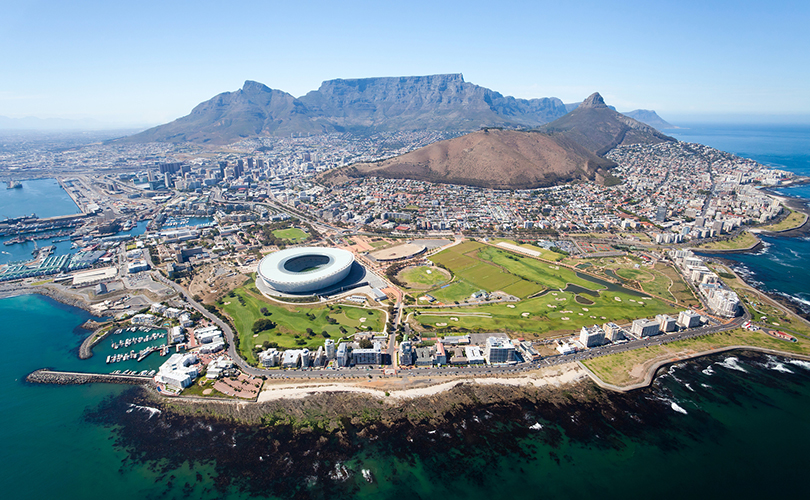
Cape Town Overview
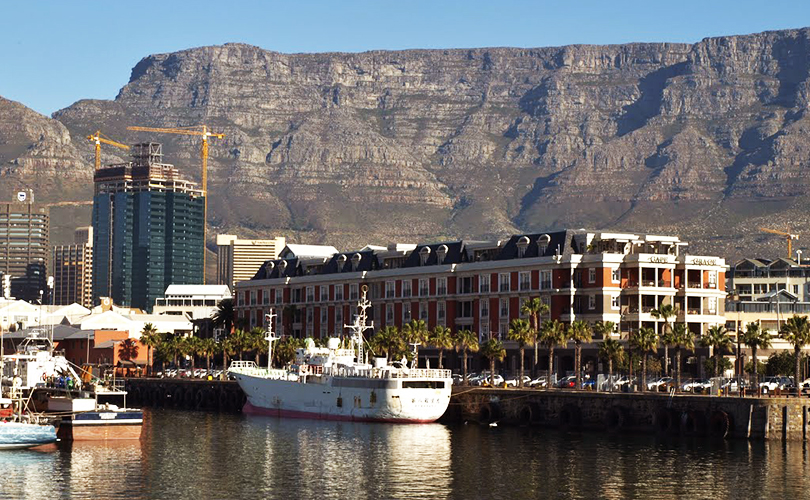
Table Mountain
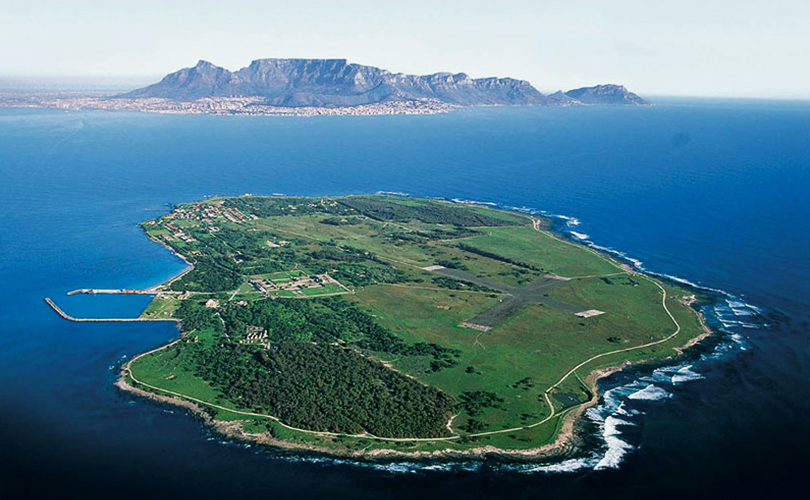
Robben Island
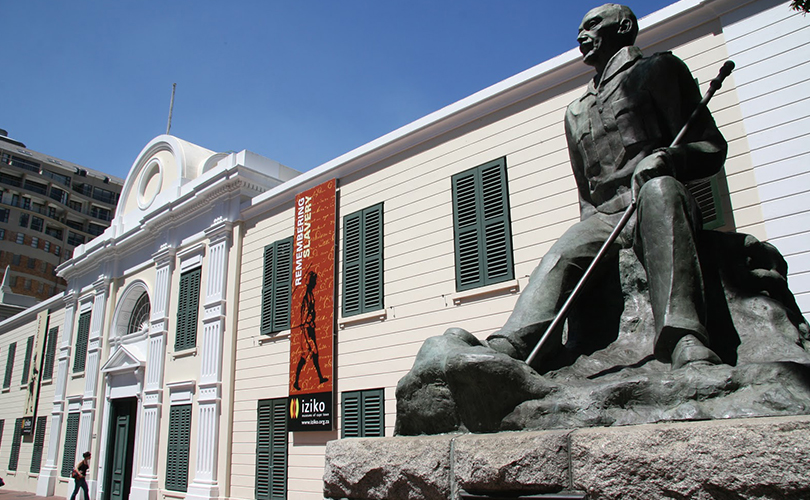
Slave Lodge

SA Museum

Table Mountain Aerial Cable Car

Signal Hill

Greenmarket Square

Cape Peninsula

Bo Kaap

Funicular Ride

Boulders Beach

Cape of Good Hope

Cango Wildlife Ranch

Crocodile Park

Ostrich Safari

Hot Air Balloon

Valley Of Waves

Entertainment Centre

Sun City Theme Park

Victorian Fun Fair

World of Beer

Stock Exchange

Tribal Dance

Panomaric View of Johannesbu

Duty Free

Johannesburg Airport
South Africa at a Glance
| Package Code: NHI051 |
| 6 Nights / 7 Days |
| Holiday Type International Holiday, Romantic, Adventure, Family, Lesiure |
| Cities : 3 Cape Town, 2 Sun City, 1 Johanesburg |
Send Friend
Enquire Now
JANUARY
Cape Town is the second largest city in South Africa and is quickly becoming a popular holiday destination. Located on the southern coast of the African continent, most visitors head to Cape Town for the beautiful scenery, cosmopolitan atmosphere and fantastic weather. January is the height of summer weather for this city in the southern hemisphere, with hot afternoons and little precipitation characterising the month in Cape Town.
The resort enjoys a Mediterranean climate with short, mild winters, which occur June through to August, and long, warm summers that last from December through to March. Most of the rain occurs during the winter months, with very little falling throughout the rest of the year.
Temperature
During January, the average high temperature reaches a scorching 28°C (82°F), so make sure you come prepared and bring plenty of suntan lotion to avoid sunburn. The temperatures change dramatically during the evening, with the average low temperature dropping to 16°C (61°F), and many visitors will want to bring a jacket.
Despite the drastic difference in the average high and low temperatures for the month of January, there are a number of days that are comfortable, particularly in the morning and early evening. The average temperature for the month evens out at 22°C (72°F).
Sea Temperature
The month of January is perfect for swimming at the beaches near Cape Town. The waters are warm enough for swimming, wading or even learning to surf. The average sea temperature for the month of January is a warm 20°C (68°F).
Rainfall
Most visitors will not need to worry about rain in Cape Town in January. The month is relatively dry with average precipitation levels of 20 mm of rain, over the course of an average 6 rainy days a month.
Sunshine Hours
There is plenty of bright sunshine in January, with an average 11 hours of sunlight per day. Visitors who want to be outdoors will love the long, cloudless days that are perfect for exploring the sea, sand and mountains around Cape Town.
FEBRUARY
Cape Town\'s location on the south coast of South Africa means the increasingly popular tourist destination enjoys a Mediterranean climate. The summer months in Cape Town are hot and dry, and February is the hottest time of the year to visit.
Temperature
The summer months in Cape Town stretch from December through to March, while cooler weather sets in from April through to November. In February, temperatures can reach a sizzling 29°C (84°F) as the average high temperature. During the hottest part of the day, which is normally midday or late afternoon, visitors should plan to stay out of the sunshine to avoid heatstroke and sunburn.
The evenings in Cape Town are cooler, and the average low temperature drops to 16°C (61°F), the same as in January. Meanwhile, pleasant mornings and evenings are perfect for dining al fresco and exploring the outdoor attractions around Cape Town. The average temperature for the month of February is 23°C (73°F).
Sea Temperature
The beaches near Cape Town are stunning, and there is no better time of year to enjoy time on the sand. February is the perfect time to escape the city streets for swimming, as the average sea temperature is the warmest of the year at 21°C (70°F).
Sunshine Hours
There is plenty of sunshine during the summer months of December, January, February and March, with a collective average of 10.5 hours of daily sunlight. The month of February has an average 10 hours of daily sunlight, and the long days are perfect for outdoor activities and fun in the sun.
Rainfall
February experiences the least amount of precipitation of the year in Cape Town. With an average 20 mm of rain, visitors can expect most days of holiday to be dry and cloudless. Historically, Cape Town only has an average 5 wet days during the month of February.
MARCH
Cape Town is a great place to visit in March. The weather is still warm from the recent summer, while many other destinations are still experiencing cold temperatures or a lot of rain as winter turns to spring in the northern hemisphere. With a location in the southern hemisphere, March marks the end of summer in Cape Town. The resort begins to cool down in March, when the summer season comes to a close. The average temperature lingers at 21°C (70°F), just below the average for February at 23°C (73°F). During this month of March you can expect the average high temperature of 27°C (81°C), and the sun is still strong so it is important to take precautions against dehydration and sunburn.
Temperatures are cooler overnight, with the average low temperature dropping to 14°C (57°F). Whether taking a stroll or planning to dine and drink outdoors, visitors will find that a jacket is necessary for a holiday to Cape Town in March.
Sea Temperature
Just as the air temperature begins to cool throughout the month of March, so does the average sea temperature. The average sea temperature is now 20°C (68°F), and will continue to fall during April, May and the winter months.
Rainfall
While temperatures are lower, the amount of precipitation is on the rise throughout the month. Cape Town receives an average 30 mm of rain during the month of March, and visitors should plan for an average 6 rainy days throughout the month.
Sunshine Hours
There is still plenty of sunshine during March. The days are still long and the skies mostly cloudless. On average there are 9 hours of bright sunlight per day during March.
APRIL
With the winter season just around the corner, the weather in Cape Town, South Africa continues to cool down in April. From land to sea, the temperatures drop throughout the month and the amount of precipitation is increasing. However, April is still a great time to visit South Africa, as the Mediterranean climate means the resort experiences mild and pleasant autumns that delight sun seekers and city explorers alike.
Rainfall
There is an increase in precipitation from March to April, with April having an average 50 mm of rainfall during the month and March only an average 30 mm. There are also an increased number of wet days during April. An average 9 rainy days during the month means visitors should be prepared for some overcast skies and precipitation. The amount of precipitation in Cape Town continues to increase throughout the autumn and summer, with July receiving more rain than any other month.
Temperature
The average temperature during April is a mild 18° (64°F). After the warm sun has set the overnight temperature drops, sometimes significantly in late April. The average low temperature is 12°C (54°F). The average low temperature will continue to drop during May, June and the winter months. These much lower temperatures mean after sunset, you will want some warm clothes while on holiday. While during midday and late afternoon in April, temperatures in Cape Town reach an average high temperature of 23°C (73°F). The warm, yet pleasant high temperatures in April are often ideal for getting out and about in the city or nearby natural attractions.
Sunshine Hours
Despite cooler nights, daytime can be filled with bright sunshine. The average hours of daily sunlight is 7 hours.
Sea Temperature
The average sea temperature is 19°C (66°F), which means visitors planning to participate in diving or snorkeling will want to plan for a wetsuit.
MAY
May is one of the coolest and wettest months of the year in Cape Town, South Africa. The month begins as autumn, and as temperatures drop throughout the month ends as winter. Being located in the southern hemisphere, the following months of June, July and August will be the coldest of the year in Cape Town, and the weather of May is a preview of what is to come.
Visitors will certainly want to bring jackets and layers, as well as prepare for some precipitation. However, the natural beauty around Cape Town is no less stunning in the cooler months, and May can be a great time to visit when there are less tourists at the popular attractions like Table Mountain.
Temperature
If you visit Cape Town in May, you can expect an average temperature of 16°C (61°F). The days in May are cool and often overcast. The average high temperature reaches 21°C (70°F) with the warmest time of day being just after midday. Normally the temperature will drop again throughout the late afternoon and early evening. The overnight low temperature is a chilly average of 10°C (50°F).
Sea Temperature
The average sea temperature continues to drop throughout May. The warmer water experienced during the summer months of December and January has disappeared, and beachgoers will find the ocean chilly. The average sea temperature is 18°C (64°F). It is recommended that those wanting to surf wear a good wetsuit.
Rainfall
Remember to pack some waterproof clothing for a holiday in May, as Cape Town averages 12 rainy days during this month, compared to only 9 in April and a mere 6 rainy days throughout March. There is an average 70 mm of rain expected throughout the month. It is not uncommon for Cape Town to have many cloudy days throughout May.
Sunshine Hours
Likewise as the southern hemisphere moves from autumn to winter, the days continue to be shorter. Accompanied by more cloudy and rainy days May has fewer hours of daily sunlight than other months of the year. The month sees an average 6 hours of daily sunlight. Therefore, locals and visitors alike celebrate a bright, sunny day in May.
JUNE
Cape Town is a lively and vibrant city located along the southern tip of South Africa. While the surrounding area is known for gorgeous natural escapes and sights, the city itself is filled with great eateries, art galleries, and other interesting activities; the colder, winter weather of June can be a great time to explore what Cape Town itself has to offer.
Throughout June, the temperature in Cape Town falls lower and lower. Just like in nearby Camps Bay, June is the middle of winter in Cape Town, South Africa. The month of June, along with July and August are the coldest and wettest times of year to visit Cape Town, and visitors should be prepared for both of these winter elements.
Temperature
In June, Cape Town is unlikely to experience temperatures above 18°C (64°F), which is the average high temperature for the month. Meanwhile, the evening and early morning temperatures are considerably lower, with temperatures starting to drop at sunset. The average low temperature falls to 7°C (45°F), and the overnight temperature is quite cold.
The average temperature for the month is a crisp 13°C (55°F). Visitors will want to bring plenty of warm clothing, particularly if you have plans to take on the walks and hikes near Cape Town.
Rainfall
It is almost certain that visitors will experience some rain during a stay in June. The resort receives an average 90mm of precipitation, and only July experiences more rain on average at an expected 100 mm. Also, Cape Town averages 14 rainy days in June. The rainy weather continues throughout the winter, with both July and August having an average 14 rainy days, as well. With this in mind, make sure you come prepared and pack some warm and waterproof clothing.
Given the colder air temperatures and rain, June is not a great time for beachgoers and sun seekers in Cape Town.
Sea Temperature
Additionally, the sea temperature is also very cold. The average sea temperature in June is 17°C (63°F), a noticeable difference from the summer high temperature in January of 20°C (68°F). However, June is fantastic time for whale watching, as described below.
JULY
Many visitors to Cape Town do not expect July to be the coldest and rainiest time of the year in this large South African city because the northern hemisphere is experiencing the height of summer. However, July in South Africa is frequently rainy and often cold. In fact, July receives the most rainfall of any month in the year. Most visitors in July smartly plan for indoor activities such as time at Cape Town's many galleries and museums.
Rainfall
On average Cape Town receives 100 mm of precipitation in the month of July. July days are often cloudy or overcast, and there are an average 14 rainy days throughout the month. It is almost certain visitors will experience some precipitation while visiting the resort in July.
While it only snows on a very rare occasion at the resort, less than an hour away it snows nearly every year. Beginning in June and continuing through July the more mountainous towns of Ceres, Worchester and Tulbagh, located just west of Cape Town, receive plenty of white powder. However, throughout July there will often be speculation of icy rain, hail and snow in Cape Town itself, so visitors should come prepared for the small possibility of winter weather.
Sunshine Hours
The shorter winter days and likelihood of clouds and rain also mean less daily sunlight. On average, there are 6 hours of daily sunlight during July. Visitors should capitalise on these hours to ride the cableway or take in the view of Cape Town's beautiful beaches from above.
Temperature
July is also one of the coldest times of the year in Cape Town, South Africa. Whilst you are there, expect that the average temperature will be a crisp 13°C (55°F), and most days the morning and early evening temperature will hover around this point. The average high temperature for the month reaches 18°C (64°F) during the warmest points in the afternoon, which is perfect for exploring Cape Town.
Once the sun sets, the temperature begins to drop. The average low temperature is 7°C (45°F), and along with August is the coldest expected temperatures of the year in Cape Town.
Sea Temperature
The ocean is similarly cold during July. The average sea temperature reaches its lowest point at 16°C (61°F), and the cooler water temperatures will continue throughout August and September, before the spring weather of October finally begins to heat up again.
AUGUST
Due to Cape Town's location in the southern hemisphere, August falls within the winter season in Cape Town, South Africa, just like it does in the nearby South African resort of Stellenbosch. Cape Town is the second largest city in South Africa and there is plenty for visitors to do even in the colder months, like August. However, August is one of the coolest and dampest of the year, and visitors should be prepared for rain and cold evenings when visiting the resort during this month.
Temperature
While there is definitely a change in seasons from the summer months of December and January to the winter months of June, July and August, the average temperature in Cape Town remains relatively mild all year long. Unlike other destinations, the average temperature never drops below freezing, even in July and August. In fact, during a stay in Cape Town in August, you can expect the average temperature to be 13°C (55°F). This balmy temperature is great for exploring Cape Town.
Like the other winter months of June and July, you can expect the average high temperature to reach 18°C (64°F). Similarly, every day the temperature drops after sunset, and during August the average low temperature is a cool 8°C (46°F). As well, Cape Town and surrounding sights like Table Mountain can be very windy during the winter months.
Sea Temperature
August is not a great time for beachgoers. The winter weather is still unpredictable and crisp, while the sea temperature remains cooler, as well. The average sea temperature of 16°C (61°F), means surfers will definitely want a wetsuit.
Rainfall
Visitors should also be prepared for rain during the month of August. Normally, there is significantly less rain in August than July, with only an average 70 mm of precipitation compared to July's 100 mm. But with an average 14 wet days throughout August, visitors are likely to experience some overcast and rainy days while on holiday.
Sunshine Hours
Visitors and locals alike will rejoice in the sunlight that does reach Cape Town in August. While days are finally growing longer, there is only an average 6 hours of sunlight per day.
SEPTEMBER
During the months of September and October destinations in the southern hemisphere begin to experience spring weather. The days are becoming longer and the weather brighter and drier. Throughout September bright sunny days are common, unlike in the winter months of July and August, and as the weather improves, the South African costal towns, like Cape Town, really come to life again.
While Cape Town\'s weather is mild year round due to its Mediterranean climate, the weather gradually improves in September. From the start of the month to the end of the month, it is clear that winter has turned to spring, and more people are getting outside to enjoy it.
Temperature
During September, you can expect an average temperature of 14°C (57°F), up slightly from an average 13°C (55°F) in June, July and August. Likewise, the average high temperature is also a bit higher in September. Visitors can anticipate the average high temperature at the warmest point in the day to be 19°C (66°F). Throughout the other spring months, October and November, the air temperatures will continue to rise in Cape Town.
However, visitors will still want to be prepared with jackets and layers, as after sunset the temperature will drop. The average low temperature, occurring overnight, is a balmy 9°C (48°F). Visitors will also want to be aware of cooler water temperatures. The average sea temperature is a mere 16°C (61°F).
Rainfall
Unlike the wettest month of July, which has an average 100 mm of precipitation, September only experiences an average 50 mm of rain. The upcoming months of October and November will receive even less precipitation. However, with an average of 12 rainy days throughout September, it is almost guaranteed that you will experience some rain during your stay.
Sunshine Hours
Despite some rain, many days in September are clear and sunny. There are an average 7 hours of daily sunlight, which shows that the days are becoming longer and brighter. This is a trend that will continue through the spring and summer in Cape Town.
OCTOBER
Located along South Africa's southern coast, there are some incredible beaches close to Cape Town, however the colder weather that begins in May and June often keeps visitors from heading to the water throughout the winter months. In October, the air and sea temperature finally begins to rise and the wind is not as strong, so this month sees the first beach days.
Sea Temperature
The sea temperature reaches 17°C (63°F), up slightly from the average 16°C (61°F) in September.
The ocean waters will continue to warm throughout the late spring and summer, and along with the clear, sunny days Cape Town transforms from trendy city to beach destination by December.
Sunshine Hours
October falls squarely within the spring season in Cape Town, which means the resort is warmer and drier than the previous months, just like it is in the smaller, seaside town of Hermanus. October is also known for clearer skies and stronger sunlight than the months before it. During October there is an average 9 hours of daily sunlight, up significantly from the 7 hours in September.
Temperature
The average temperature in October is 16°C (61°F), and visitors can anticipate that the warmest time of day will be at an average high temperature of 21°C (70°F). These warm, yet mild, temperatures are perfect for exploring the galleries and eateries throughout Cape Town.
When the sun sets, the temperature in Cape Town also drops and the overnight temperature is a lot lower than during the day. Overnight the average low temperature is 11°C (52°F) at the resort, and visitors should prepare by packing a jacket or layers for the evening meal and after.
Rainfall
October sees very little rain in Cape Town. There are still an average 9 rainy days throughout the month, but many of these are characterised by overcast skies rather than a lot of precipitation. Cape Town only receives an average of 40 mm of rain for the entire month of October. This is less than half the amount that is received in the wettest month of July. Finally, visitors are able to head outdoors without the threat of rain every day.
NOVEMBER
The temperatures continue to heat up in Cape Town in November. The temperate climate in South Africa means the weather is consistently mild and comfortable all year round, however the clear days of November are a great preview of Cape Town's best weather. Visitors and locals alike can feel that the summer season is just around the corner, as the days become longer, warmer and sunnier.
Located on the southern coast of South Africa, Cape Town is a destination for tourists year round. However, the stunning beaches just outside the city are often too windy and cold for visitors throughout the winter and spring months from May to October.
Sea Temperature
However, November is finally heating up, and the increased number of visitors on the beach is a sure sign that the water is warmer as well. The average sea temperature hits 18°C (64°F), and both experienced and novice surfers are constantly taking to the waves along South Africa's beaches. Many people prefer to wear a wetsuit all year long when surfing in South Africa.
Temperature
The air temperature becomes increasingly warm as well. The average temperature for the month matches the water temperature at 18°C (64°F). Meanwhile, the average high temperature reaches 23°C (73°F).
Visitors should expect the overnight temperatures to remain cool. The average low temperature still drops to 13°C (55°F) in the evening, so do not forget to pack a jacket.
Rainfall
Unlike the winter months of July and August, spring in Cape Town is relatively dry. Throughout September and October, the weather begins to clear and overcast skies often turn to sunshine. By November, Cape Town only receives an average 20 mm of precipitation. This little amount of rainfall occurs over an average of 7 rainy days during the month.
Sunshine Hours
This reduction in rainfall, coupled with the longer days in November, equal more sunshine in Cape Town. An average 10 hours of daily sunlight means visitors in November are treated to sunny days perfect for exploring the resort and surrounding outdoor attractions.
DECEMBER
December marks the beginning of the summer season in Cape Town, South Africa, and the days are glorious with little precipitation and plenty of bright sunlight.
Located on South Africa's southern coast, the weather in Cape Town remains temperate all year long, but winter can be rainy, making December and the other summer months a much better time for visitors who want to be outdoors. It is easy to see why the rising temperatures and dry days that characterise December make it one of the most popular times to visit this resort.
Rainfall
There is very little precipitation during the month of December. With an average 20 mm of rain throughout the entire month, most of the 7 wet days in December are overcast with intermittent rain. Visitors should come prepared for the occasional rain.
Sunshine Hours
Overall, Cape Town is a wonderful December destination. The holiday spirit is in full swing, and because it is located in the southern hemisphere December is the sunniest month of the year in Cape Town, and also has the longest days. These factors mean you can expect an average 11 hours of bright sunlight daily. For visitors from Europe and other places in the northern hemisphere, Cape Town is a great place to find some sun.
Temperature
Rising temperatures in December beckon visitors and locals alike to the outdoors. If you plan a stay during this month, you can expect the average high temperature to hit 25°C (77°F) in the daytime, and the average overall temperature to be a pleasant 20°C (68°F). There is no better time of year to hike, bike and explore in Cape Town.
The warm sun does a lot of work during the day, and after it sets the temperature does drop. Overnight is cool, with the average low temperature being 15°C (59°F). Even the evenings and mornings can get quite chilly, so make sure you come prepared with layers and some warm clothes.
Sea Temperature
The ocean water is also warming up. The average sea temperature rises to 19°C (66°F), up from 18°C (64°F) in November, and many visitors are eager to hit the beach on December's cloudless days.
Similar Holidays
3 Cape Town, 2 Sun City, 1 Johanesburg
6 Nights / 7 Days
3 Cape Town, 1 Oudtshoorm,1 Knysna, 2 Sun City, 2 Kruger
9 Nights / 10 Days
3 Cape Town, 1 Oudtshoorm, 1 Knysna, 2 Sun City, 2 Kruger, 2 Johannesburg
11 Nights / 12 Days
3 Cape Town, 3 Knysna, 1 Waterberg, 2 Sun City, 1 Johannesburg
10 Nights / 11 Days
4 Cape Town, 3 Knysna, 1 Waterberg, 2 Sun City, 1 Johannesbur
11 Nights / 12 Days
1 Nairobi, 1 Amboseli, 1 Tarangire, 2 Ngorongoro/Karatu, 2 Serengeti, 2 Masai Mara
9 Nights / 10 Days
2 Ngorongoro / Karatu, 2 Serengeti, 1 Lake Manyara
5 Nights / 6 Days
Blog & Related Information
-
Pinpointing all of the most beautiful places in the world could take a lifetime, but we think that these 50 otherworl
-
It’s always an exciting time when we put together our list of destinations for the new year. We start our list
Copyright © 2024 Nomads Holidays. All Rights Reserved.




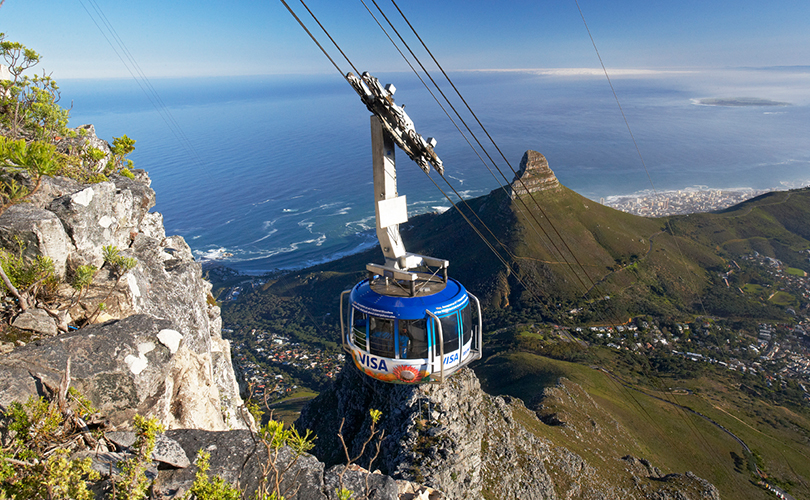
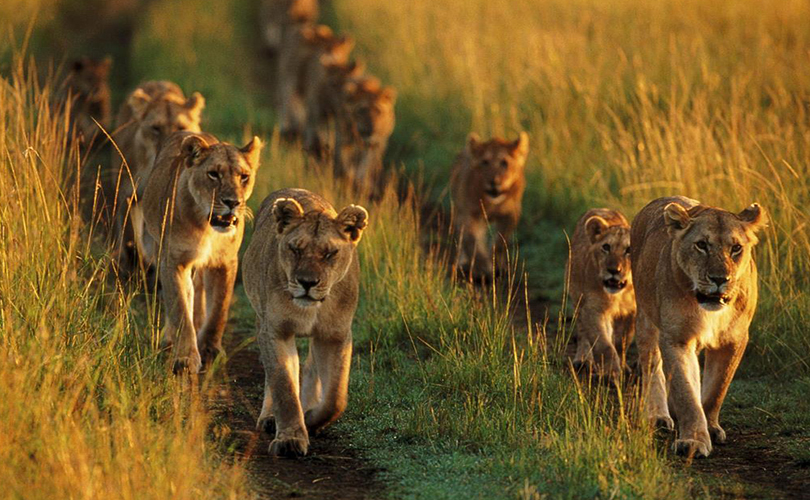
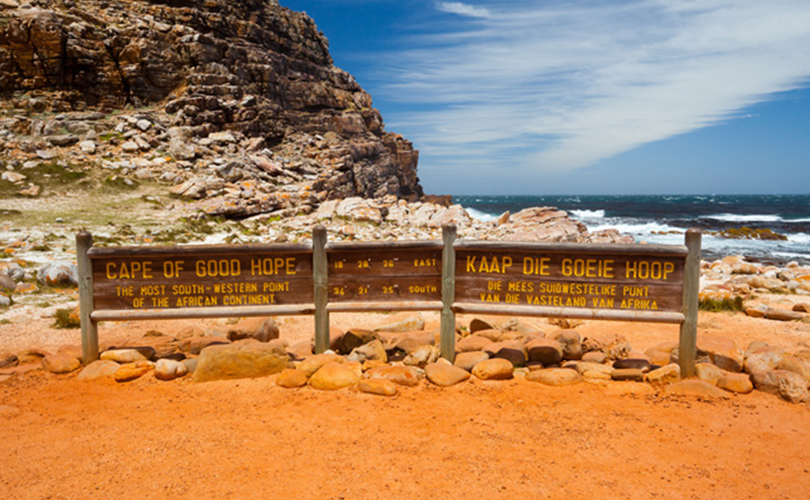
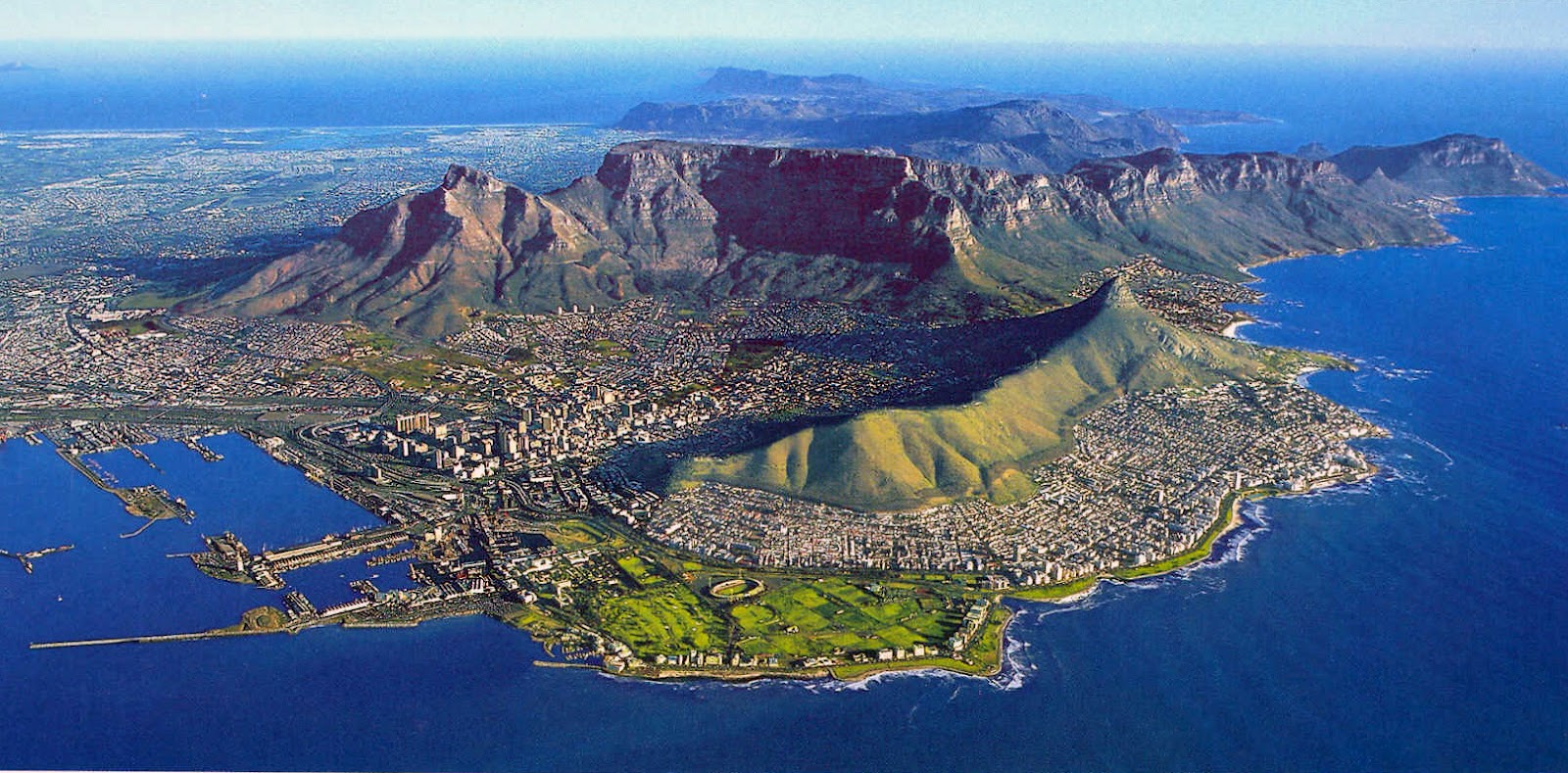
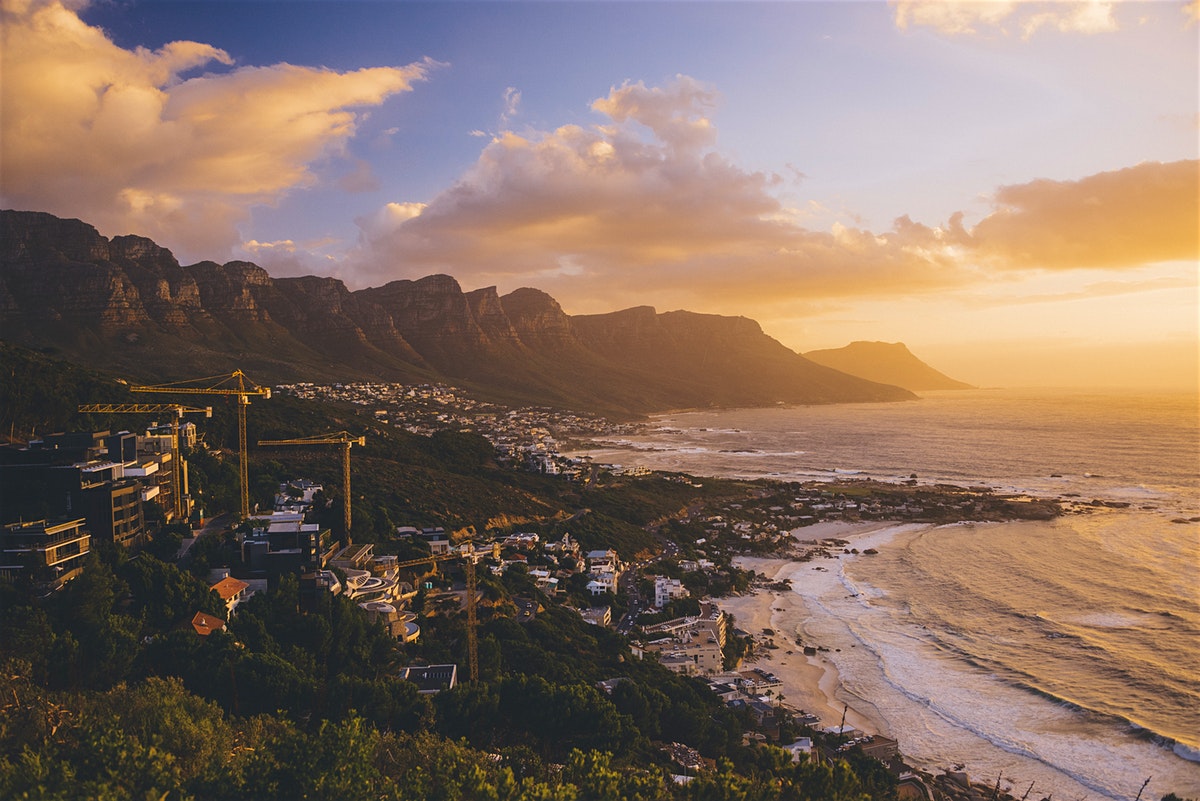

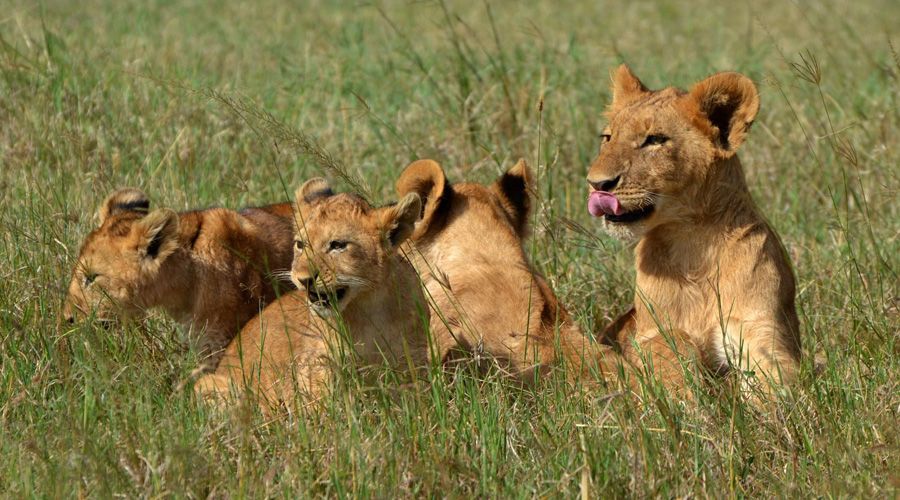
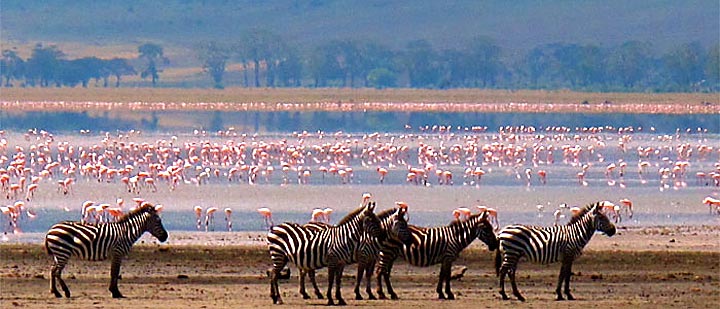


Payment Policy
Cancellation Policy
Refund Policy